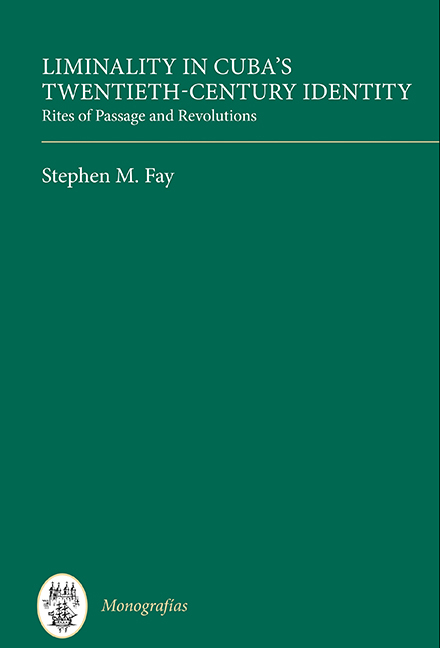Book contents
Chapter 5 - 1957: A moment in and out of time
from PART II - 1953–1965
Published online by Cambridge University Press: 14 September 2019
Summary
In a 1953 speech, on the centenary of Martí's birth, Ortiz had called for ‘un riguroso examen de conciencia y un sincero acto de contrición’ (1955b: 248). While intense introspection was evident, as we have seen, there had been no agreement on the kind of collective contrition that was called for or, indeed, whether fallibility and ‘sin’ could and should be expunged. Beyond analysis, Castro and the generación del centenario's authoritative attempt to take the national narrative by storm in July 1953 had ended in a bloody catastrophe which seemed to prove that the aberrant legacy of the machadato had merely lain dormant during the relatively pacific and democratic interlude of the 1940s. As state-sponsored brutality joined corruption and graft after March 1952, the socio-psychological cycle in Cuba seemed to have come full circle, from Zayas the crook to Machado the butcher to Batista the coup-monger. Arendt's most pessimistic predictions about eternally frustrated and eternally vengeful humankind seemed to be coming dismally true in Cuba. But in May 1955, in an almost inexplicable display of apparent compassion (stimulated perhaps by a sense of unassailability), Batista announced an amnesty and Castro and the other Moncada survivors suddenly found themselves free. But neither side was prepared to seek the kind of oblique, side-of-the road compromise that Martí (and Luján) had seemed to point to. Although pardoned by the amnesty, Castro was far from forgiven, with rumours that ‘a car riddled with bullets already existed – ready for his body to be found within (killed “fighting the police”)’ (Thomas 2001: 563–4). Castro himself showed little willingness to forget (or forgive) the extra-judicial assassination of his comrades. Whereas other analyst-authors moved on from their reflections on Martí's legacy to constantly berate Batista with their pens, Castro seemed unwilling to relinquish the sword he had taken up in 1953: ‘The general atmosphere in Havana in mid-1955 was antipathetic to him. Having staked all on the politics of action and, if need be, violence, the amnesty itself and the mood of compromise which it had created played against him’ (ibid.: 563).
- Type
- Chapter
- Information
- Liminality in Cuba's Twentieth-Century IdentityRites of Passage and Revolutions, pp. 125 - 144Publisher: Boydell & BrewerPrint publication year: 2019



